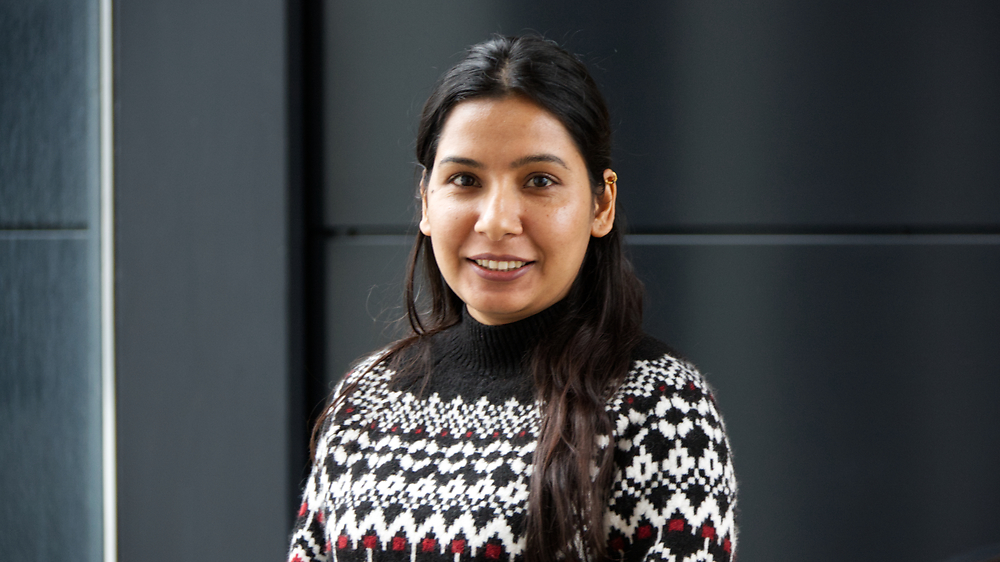February 12, 2024 | News | New faces at MPIDR
Welcome, Saroja Adhikari!

Saroja Adhikari joins the team of the Research Group Kinship Inequalities. © MPIDR/Schulz
The Research Group Kinship Inequalities welcomes Saroja Adhikari as a new member. Prior to joining us, Saroja was a researcher in the Population and Just Societies Programme at the International Institute for Applied System Analysis (IIASA). She worked primarily on global, national and sub-national population projections using multidimensional population modelling, cultural acceptability of sustainable human well-being, and educational differences in fertility intention and behaviour, mainly in low- and middle-income countries. Her research interests lie at the intersection of demography and statistics. During her stay with us for the next three years, her work will contribute to the production of demographic projections of kinship by educational attainment.
When did you start?
I have always worked in academia, either as a data analyst or as a teacher. I was introduced to demography for the first time in 2019 while I was presenting a poster at my very first conference, the Asian Population Forum. There, I got to know a lot of demographers, who I think inspired me to pursue a career in demographics.
What’s your job at MPIDR and how long will you be working here?
I have joined MPIDR as a postdoctoral researcher in the Kinship Inequalities group. Over the next three years, I will be studying the kinship structures and their short- and long-term implication across different regions.
What is your motivation to work in this field of research?
I have always been curious about how people think and behave. Studying kinship allows me to explore not just individuals but groups who share common values or characteristics. It is interesting to know how one person's traits in a family can affect others and how we are all connected and influenced by each other's characteristics and behavior.
Why did you choose MPIDR as your new employer?
In addition to having diverse demographic research projects that interest me, MPIDR, in my opinion, is particularly young researcher friendly and offers a variety of courses and training opportunities for both professional and personal growth. It is what attracted me to MPIDR.
Where are you from? What do you miss most about home?
I was born and grew up in Nepal, the country of Himalayas and of course the Mount Everest. What I miss the most about my country is food, family and weather. It is sad to know that there is not a single Nepalese restaurant in Rostock.
What is your favorite and what is your least favorite part about work?
I really enjoy everything about my job. The best part is knowing that what I do contributes on guiding and shaping our society. But, you know what is not so great? Dealing with jet lag while traveling for conferences or workshops. It can be a bit tough! 😊